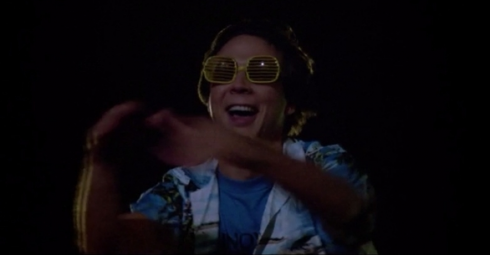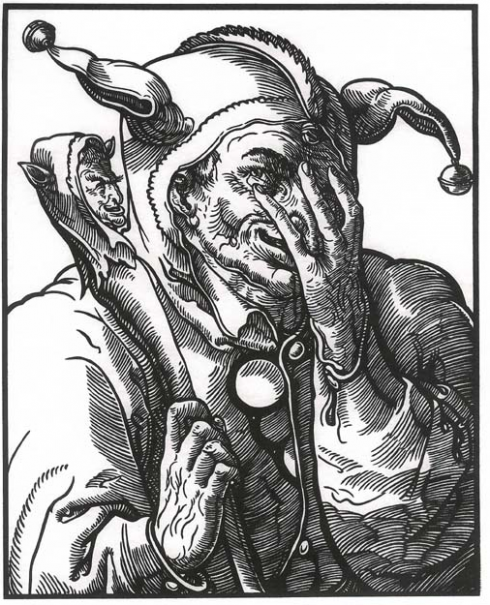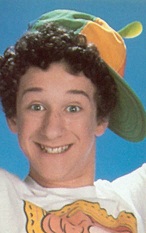Foolish Tendencies
Oddly, watching Teen Wolf the other night brought to mind a topic I’ve long intended on touching on – related, in a way, to the film’s “goofy best friend”, Stiles.

As most high school English classes will tell you – especially those teaching King Lear – the fool has a long standing place of importance in popular (and not so popular) culture.
Take, for example, The Wise Men of Gotham.
The story is that King John intended to live in the neighbourhood, but that the villagers, foreseeing ruin as the cost of supporting the court, feigned imbecility when the royal messengers arrived.
[…]
According to the 1874 edition of Blount’s Tenures of Land, King John’s messengers “found some of the inhabitants engaged in endeavouring to drown an eel in a pool of water[“]
The function of the fictional (apparent) idiot has always been to speak truth to power – or, at least, truth to the readers/watchers/listeners. The archetype was so deeply ingrained in Shakespeare’s work that actors playing the fool, whatever the play, had a fairly standardized costume.
The actor had props. Usually he carried a short stick decorated with the doll head of a fool or puppet on the end. This was an official bauble or scepter, which had a pouch filled with air, sand, or peas attached as well. He wore a long petticoat of different colors, made of expensive materials such as velvet trimmed with yellow.
 Many historians claim the character died out with the decline of royal courts, but, it’s my contention that, despite his modernization, the buffoon survives. In fact, I’ll go a step further and argue that any political structure, even if the politics are personal, will breed a place for the role.
Many historians claim the character died out with the decline of royal courts, but, it’s my contention that, despite his modernization, the buffoon survives. In fact, I’ll go a step further and argue that any political structure, even if the politics are personal, will breed a place for the role.
Consider, if you will, the class clown – was not Screech the fool to Zack Morris’ Lear?

Before him, however, came Beetle Bailey; or the jester of the corporate court, Dagwood Bumstead.
What of the (now uncomfortable) characterization of the minority house-servant who speaks wisdom beyond their position?
What of Horshack? Joey Tribbiani? Or even Hurley?
Great thought, Skinner! Almost everyone of the stock characters from Commedia Dell’ Arte still star in everyone of our sitcoms (Harlequin, of course, being The Fool). I kind of love that! Maybe it’s because I act with a repertory company (playing all of the “Comedic Patriarchs”, but there’s something comforting in the familiarity of it.
You can go through any sitcom (WKRP, Frasier, Big Bang Theory, Our Miss Brooks, or The Muppet Show) and find conflations of the same archetypes. Thankfully, I don’t believe that it’s due to a lack of creativity – but rather, just True.
Absolutely agreed – these are archetypes which we can’t shake because they remain part of our own nature.
We’d only see an end to the fool if we stopped organizing ourselves into political ladders, but I rather suspect we’ll have fixed-wing-pigs before then.